
Journalist and director of the news portal ZUGO.MD, Mihai Avasiloaie, in an interview with The Geopost spoke about the situation in Moldova after the Russian invasion of Ukraine, as well as the situation in Transnistria, a region that is part of Moldova but has its so-called institutions. He said that this region inside Moldova is under Russian control.
“Moldova lost control on Transnistria, the separatist region that borders Ukraine and is under Russian control de facto until now”, Avasiloaie told The Geopost. Avasiloaie says the Russian influence in Moldova is present, due to Russian involvement in the media as well as their involvement in Transnistria.
“Another problem is that the media în Moldova has been, for decades after the country’s independence, dominated by Russian held or financed media outlets, especially TV and newspapers. Many of these outlets But, probably, the biggest problem is our separatist region of Transnistria, that has a regime created and backed by Russia.”, he said.
Below you can find Mihai Avasiloaie’s full interview for The Geopost:
How is the situation in Moldova after the Russian aggression against Ukraine?
Nowadays, the situation in Moldova is pretty quiet. Of course, people understand there is a threat because our country has a wide border with Ukraine, where there is war happening. In the first days of the war, people were more frightened. Some of the citizens thought that the war may reach Moldova. The good thing is that it didn’t spread here. Of course, there are some ongoing beliefs that something may happen regarding to the separatist region of Transnistria. But, despite some minor provocations there wasn’t a major threat.
One thing is for sure: NATO and the foreign embassies that reside în Moldova claim that there is no threat, at the moment, for Moldova, despite the ongoing war în neighbouring Ukraine.
In the 2021 elections, Moldova has firmly chosen the path of European integration, which has resulted in an even greater openness of European partners to our country. Although it seemed that in this respect things were going to have a positive turn, unfortunately, the war in Ukraine hit hard in the Moldovan economy and in local investments. Prices have risen sharply for gas, electricity, fuel and food.
From the very first day, Moldova condemned the Russian agression in Ukraine, but has not joined the international sanctions. There are several reasons for that, but themain oneis the country’s dependence on Russian resources.
Also, Moldova is a neutral country by Constitution, which means that it cannot provide weapens and troops în Ukraine. It’s not like the undeveloped Moldovan army has something really valuable to offer to the Ukrainian defence forces, but still.
At least 500.000 refugees entered Moldova from Ukraine starting February 24th, which makes Moldova the most affected country in the region by number of refugees per capita. Only less than 100.000 people remained in Moldova; half of them are children. The way Moldovans opened their doors to help refugees has been praised in international media and by important foreign officials.
How present is Russian influence in Moldova?
First, I have to remind you that Moldova is a post Soviet country. In some parts of the country there are still people that have that Soviet thinking, Soviet related ideas. For an instance, even though Moldova is a parliamentary republic, where the Parliament has the main power, most of the people still wait for the President to rule the country even though the President has very few competences. So, the desire of the people to have a strong leader is still present. Some of them consider Putin a powerful leader. Our last polls showed that approximately one third of our citizens support or somehow justify the Russian aggression in Ukraine. So we can see that as a proof of Russian influence here, of Russian propaganda which is widely spread in Moldova.
You have to know that pro-Russian parties din Moldova have arguably around half of the votes in elections (both parliamentary and presidential). In most cases, Moldovans vote not for a doctrine or a government concept, but on identity criteria (pro-Western or pro-Russian vote). Of course, everybody says they vote for Moldova, but they mostly rely on one of those two patterns.
Another problem is that the media în Moldova has been, for decades after the country’s independence, dominated by Russian held or financed media outlets, especially TV and newspapers. Many of these outlets
But, probably, the biggest problem is our separatist region of Transnistria, that has a regime created and backed by Russia.
Can you tell us something about the situation in Transnistria?
You must know that Transnistria is a small part of the Republic of Moldova that has its own so-called authorities. Moldova gained its independence from the Soviet Union in 1991. In 1992 in Moldova started a military conflict. The conflict started with direct involvement of Russia who was sending weapons and men. Hundreds of men have died.
As a result, Moldova lost controlonTransnistria, the separatist region that borders Ukraine and is under Russian control de facto until now. Russia even has more than 1500 soldiers stationed illegaly în Transnistria (not including the so-called Russian pacifiers), even though Moldova demanded many times the withdrawal of these troops.
Military experts say that even though Russian has troops and ammunition în Transnistria (The Cobasna ammunition depot has been referred to arguably the largest ammunition depot in Eastern Europe with to 20,000 tons of Soviet-era weapons), these forces are not an actual threat to Ukraine. Also, they say at the moment linking Russian forces from south of Ukraine (Kherson) with the ones în Transnistria has very low chances of happening thanks to the Ukrainian defence în Mykolaiv and Odessa regions.
How threatened is Europe from the Russian influence (propaganda)?
Russia still wants to influence some processes in Europe. As you can see, once in a while Russian diplomats are being expelled from the European countries. There were some Russian state-funded media in Europe; some of them were banned recently, for example Sputnik and Russia Today. You cannot, also, ignore the role of the so-called troll factories, that spread ideas of on social media in a kid of organic way.

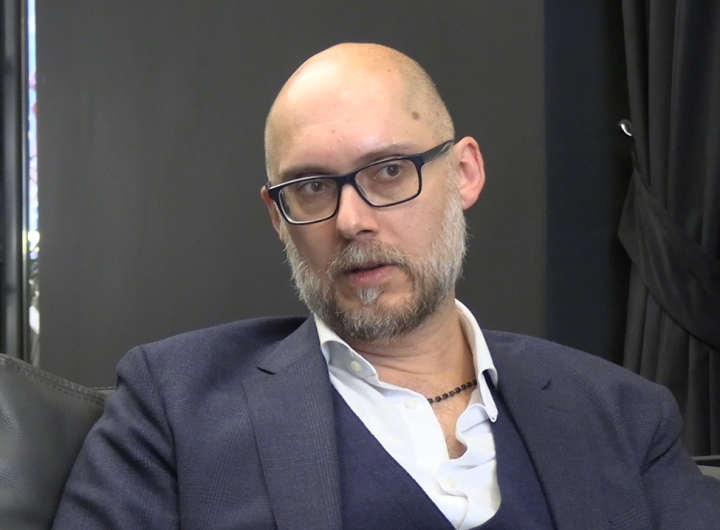 Paolo Palumbo: Russia is strengthening disinformation campaigns through artificial intelligence
Paolo Palumbo: Russia is strengthening disinformation campaigns through artificial intelligence 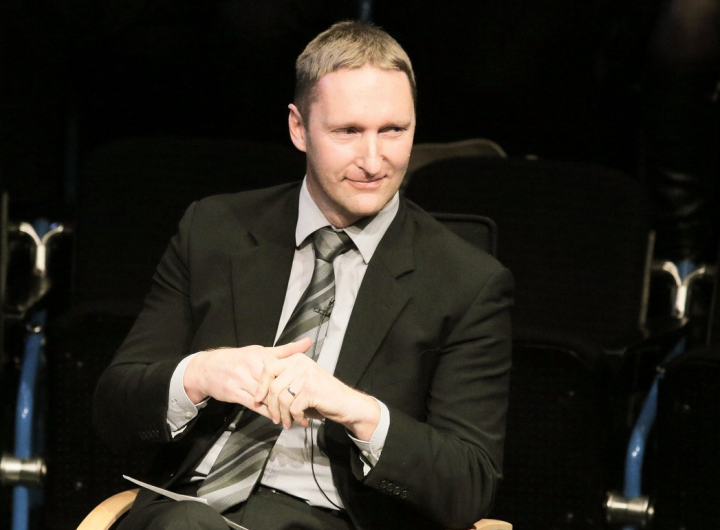 Professor Iztok Prezelj: Balkans influenced by external powers, Serbia serves as an entry point for Russia
Professor Iztok Prezelj: Balkans influenced by external powers, Serbia serves as an entry point for Russia 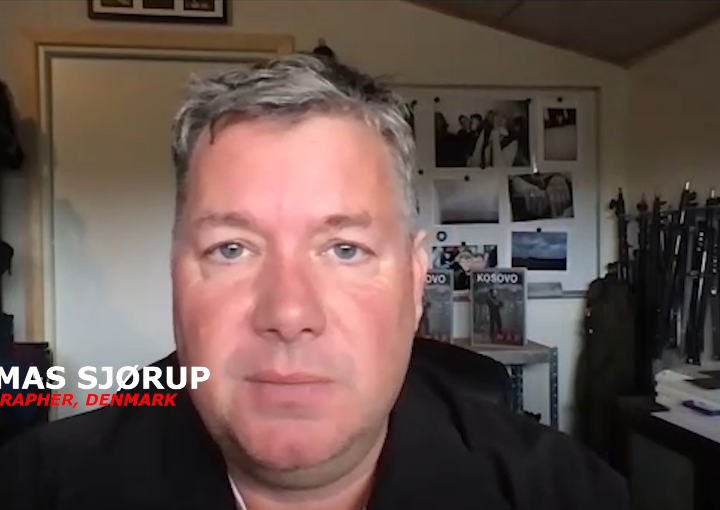 Kosovo through the lens, interview with the photojournalist of 1999
Kosovo through the lens, interview with the photojournalist of 1999 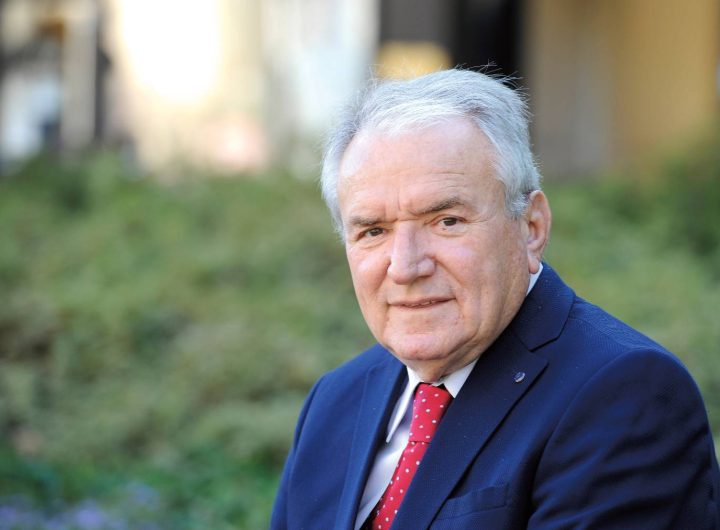 Djukic for The Geopost: There is a civil war in Serbia, the final outcome will be known in a few weeks
Djukic for The Geopost: There is a civil war in Serbia, the final outcome will be known in a few weeks 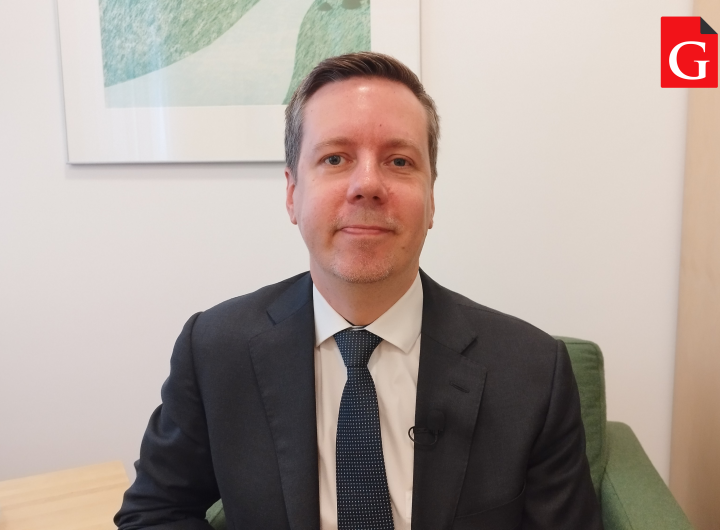 Nissinen: Kosovo is on the right path towards European and Euro-Atlantic organizations
Nissinen: Kosovo is on the right path towards European and Euro-Atlantic organizations 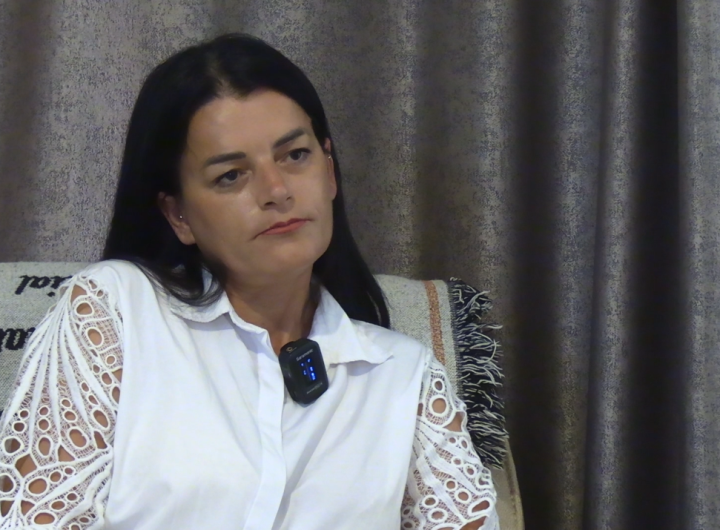 Vasfije Krasniqi-Goodman: Fighting for justice is what every survivor deserves
Vasfije Krasniqi-Goodman: Fighting for justice is what every survivor deserves